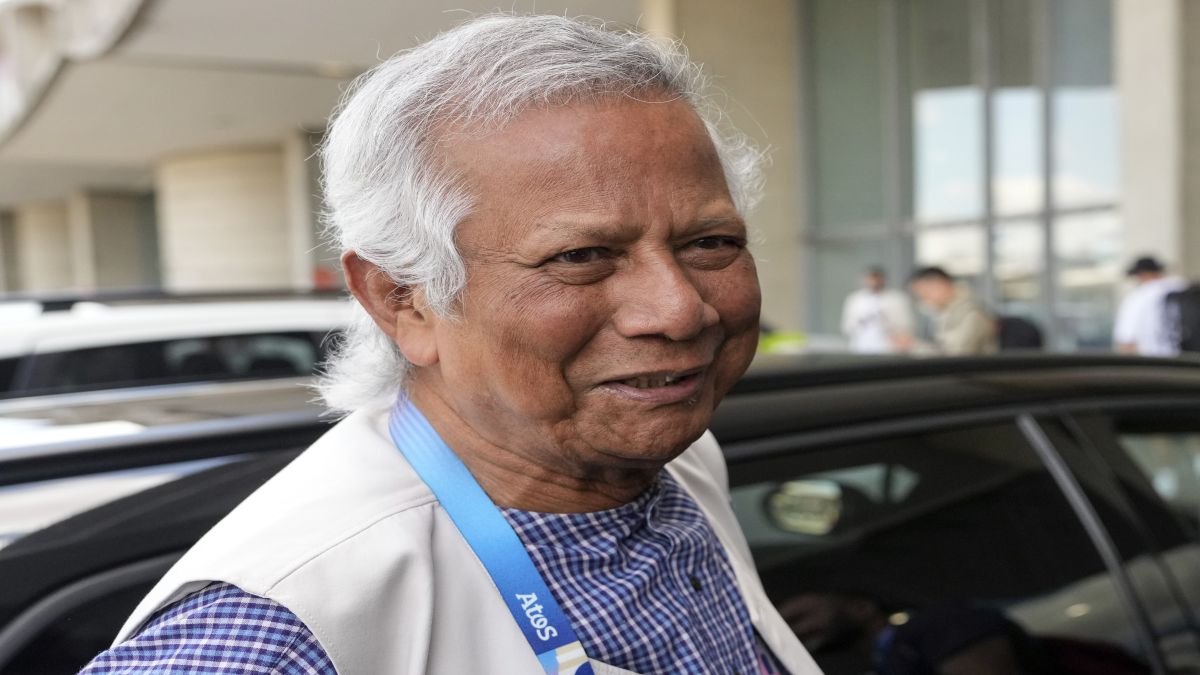In September 2024, Muhammad Yunus, the head of Bangladesh’s interim government, dismissed writer-activist Taslima Nasreen’s concerns that Bangladesh might face a situation like Afghanistan. He blamed India for such a narrative, and also asked New Delhi to stop promoting the idea that Bangladesh would become like Afghanistan without Sheikh Hasina in power. Now, just four months later, Bangladesh appears heading in the same direction under Yunus’s watch.
A controversy has broken out in Bangladesh over changes to second-grade Bangla textbooks, sparking anger among gender equality supporters. Bangladesh’s leading newspaper The Dhaka Tribune reported on Tuesday that the 2024 edition of Amar Bangla Boi included a story called Amar Barir Kaj (Our Household Chores), which showed both boys and girls sharing household responsibilities—a modern approach that challenged traditional gender roles. But in the 2025 edition, these tasks have been given mostly to female characters, reinforcing old-fashioned stereotypes.
Critics fear that this backward message is similar to the Taliban’s way of thinking and could harm efforts to teach children about gender equality. Education experts say textbooks should show shared responsibilities and encourage respect for women’s roles in society.
Persistent gender bias in Bangladesh
Bangladesh has made progress in promoting gender equality through constitutional guarantees, gender-focussed policies and budget allocations. However, the reality is far from perfect. In an article for The Daily Star in September 2023, Stefan Liller, UNDP Bangladesh’s resident representative, pointed out that major inequalities remain.
According to the 2022 Labour Force Survey, women in Bangladesh spend eight times more time on unpaid care work than men and only 42 per cent of working-age women are part of the labour force. Those who work face a large gender wage gap and just 13 per cent of women own land.
The statistics highlight even more concerning issues. Over 54 per cent of women in Bangladesh have experienced physical or sexual violence in their lives. A study by Dhaka University and UNFPA shows that son preference is still common, with some parents resorting to sex-selective abortions.
Impact Shorts
More ShortsThese problems are worsened by deeply ingrained societal norms. According to the GSNI, 99 per cent of people in Bangladesh hold at least one bias against women. Shockingly, more than 99 per cent of women also have biases against their own gender, further reinforcing the societal norms that block progress.
According to Liller, these biases are rooted in historical, cultural, social and economic factors that have shaped gender roles for a long time. Patriarchal norms still place men as the main earners and decision-makers, pushing women into secondary roles. Practices like child marriage make this worse, as they take away girls’ chances for education and economic independence while reinforcing traditional gender expectations.
In the workplace, women face many obstacles that limit their opportunities. Even though access to education has improved, societal views and the difficulty of balancing family responsibilities with work keep many women out of public life. Leadership roles in politics and business are still mostly held by men, which strengthens inequalities and reduces women’s ability to influence policies that could promote gender equality.
Role of education in transforming gender norms
Education is a powerful way to challenge deep-rooted gender biases and change how society thinks. By including gender-sensitive lessons in school, children can learn critical thinking and values of equality. However, the recent controversy over textbooks shows how hard it can be to keep education progressive.
Men as allies
Men play an important role in achieving gender equality, but traditional ideas about masculinity often put pressure on them too. These expectations can affect their well-being and contribute to gender inequality. Encouraging men to share household work, support women’s career goals and stand up for equality helps everyone. A society that values and empowers all its members, no matter their gender, becomes stronger, more united and more successful.
A call to action
Bangladesh stands at a critical crossroads in its journey toward gender equality. It is up to the country to decide whether it will follow a path similar to the Taliban or choose a progressive route toward gender equality.
The backsliding of Bangladesh, as it emerges from the emergence of hardline voices including the Jamaat-e-Islami after the ouster of Sheikh Hasina last year and under the watch of Nobel Laureate Chief Adviser Yunus, comes as early mimicking of Taliban policies in Afghanistan after the fall of the US-backed Asharaf Ghani government.
In their early messages, the Taliban hinted that they would not suppress the rights of women and signalled a departure from their avatar of the 1990s. However, as the regime consolidated its hold on Afghanistan, the Taliban struck at the roots of women’s rights. This happened in a phased manner (you may read Taliban’s oppression against women here , here , here and here as a few of the many examples). Once considered a progressive nation, Bangladesh of today is beginning to show similar signs.


)

)
)
)
)
)
)
)
)



